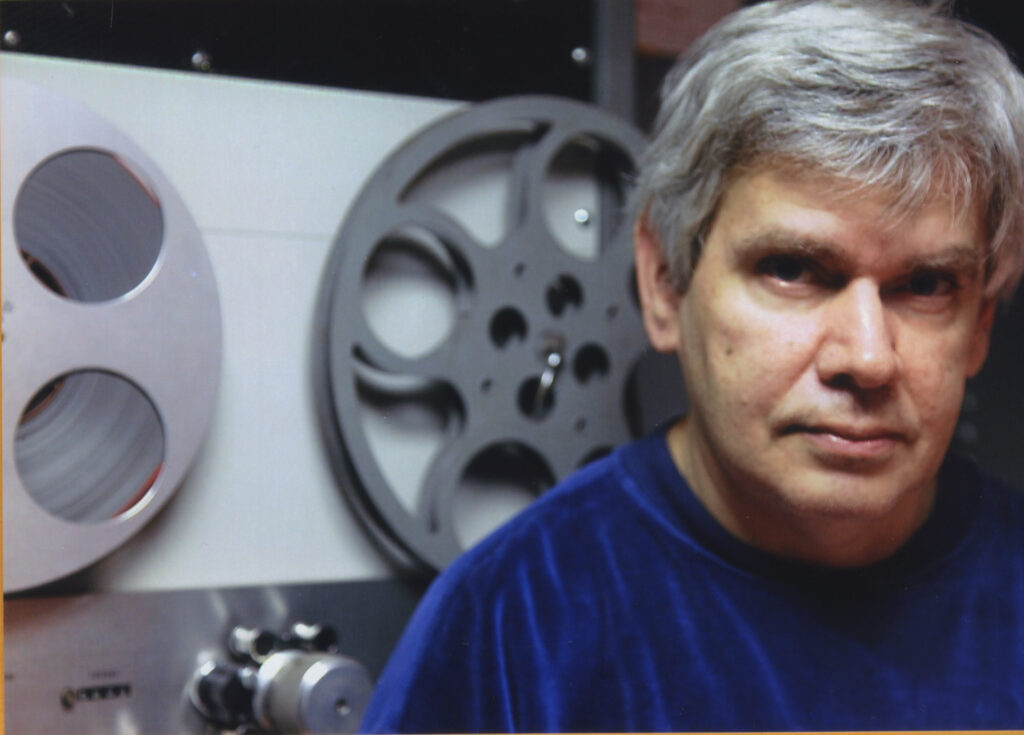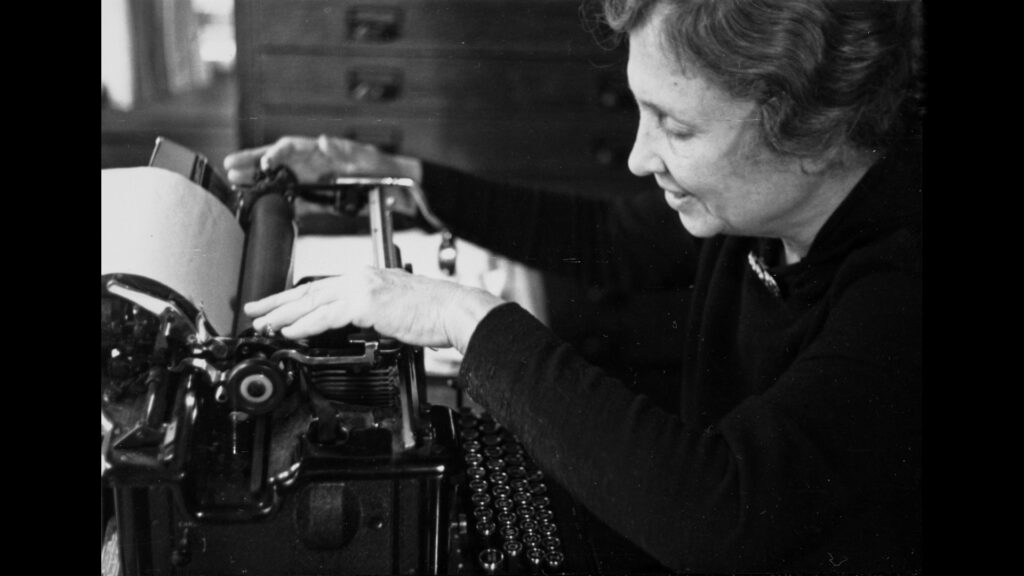Gianvito’s ‘Her Socialist Smile’ Debuting at New York Film Festival

Visual & Media Arts Professor John Gianvito‘s film, Her Socialist Smile, is having its world premiere at the 58th New York Film Festival, virtually screening from Monday, September 21, at 8:00 pm EST through Saturday, September 26, at 8:00 pm EST. You can get tickets on the New York Film Festival’s website. Her Socialist Smile will have its international premiere at the VIENNALE Film Festival in Austria in late October, as well as screenings at the Linea d’Ombra Festival in Salerno, Italy.
Q: Your new film Her Socialist Smile looks at when Helen Keller began speaking out on behalf of progressive causes. It uses on-screen texts taken from Keller’s speeches, impressionistic images of nature, and newly recorded voiceover by poet Carolyn Forché. What category would you say the film falls under — documentary? Documentary fiction?
Gianvito: I don’t tend to put labels on the films I make, I discover their identity myself after giving birth to them. I can say there is no attempt at fiction here. Maybe experimental documentary? Poetic documentary?

Q: What inspired you to create this film, and in the style you created it?
Gianvito: I first learned that Helen Keller had been an ardent believer in socialism through the work of the radical historian Howard Zinn. As I began researching her speeches, articles, and various political endeavors, I was struck by just how contemporary and pertinent Keller’s ideas remain, how much they have to offer to our own time 100 years later, but also struck by the conspicuous invisibility of this dimension of her life.
I think the popular image of Helen Keller persists as that of a blind-deaf “wild child” who through the “miraculous” efforts of Anne Sullivan learned to read, write, and speak and, beyond that, perhaps we know her to have been an author and humanitarian. While beginning to explore this as a potentially fertile subject for a film, I was surprised when I kept coming up empty-handed when looking for relevant archival film, photographic, or audio materials about this part of Keller’s life — particularly strange, given how internationally famous she had become at such a young age. The reasons for the disappearance of such materials are many, some of which I explain in the final film, but there came a time when I abandoned the project, thinking that there just weren’t enough cinematic elements to tell this story.
Eventually however, I heard a voice in my head saying to me, “So you want to make a film about the most renowned blind/deaf woman, and you have no images and no sounds – that’s actually an interesting creative problem, and you shouldn’t shy away from it.” What, exactly, my solutions were have to be experienced by viewing the film, but it was at that point that I began in earnest, with the film organically finding its form over the three-year period of production.
Q: Her Socialist Smile is virtually screening at the 58th New York Film Festival. What are your goals when a documentary is screened at a film festival, particularly such a prestigious film festival?
Gianvito: At the end of the day, I try not to think of it as a numbers game. If one person sees the film and finds it to have been a meaningful experience, enriching to their own life, then I have not wasted my time. The advantage of premiering at a major festival is primarily that such a spotlight enables a lot more folks to be aware of the film’s existence and more readily, I hope, leads to further opportunities to have the film seen.

Q: Your work is often inspired by historical figures and times. Your previous film, Profit Motive and the Whispering Wind, was inspired by Howard Zinn’s A People’s History of the United States. Far from Afghanistan is about the U.S. war in Afghanistan, and Wake: Subic looks at the toxic contamination around former U.S. military bases in the Philippines. What makes you gravitate to such varied topics?
Gianvito: I frequently say that the only reason I make films anymore is to remind myself and others that there are a lot more important things than films. Making films, writing about films, even having time to simply watch a film is a privilege, unavailable to a great number of people on this planet whose daily imperatives are a lot more immediate. And with that privilege to me comes responsibility.
The range and magnitude of urgent crises unfolding all around us is virtually impossible to even grasp. My interest in history parallels the creed of Howard Zinn that the study of history is never a neutral act, that history itself is written on a “moving train,” and its ultimate value is its ability to help us with the here and now, to provide us with tools that facilitate the work necessary in the continuing struggle to build the more just and egalitarian world for which so many of us aspire. As Helen herself puts it in the film, “I may be a dreamer, but dreamers are necessary in order to create facts.”
Q: What are you working on now?
Gianvito: Over the summer I shot material for a short film entitled The Grave’s Sky that I envision as a sort of requiem for all those struck down by the coronavirus. With the speed of daily events and our collective capacity to become benumbed by the scale of such a disaster, I felt the need to “write” a little poem of mourning. Lest we forget.
Q: What are other historical people, events, times would you like to make a documentary about?
Gianvito: Generally speaking, I don’t have a pile of projects that, were a producer to suddenly appear, I would readily launch. Since most of the films I make end up taking years of my life to see through to completion, I usually wait until each film is completed to discover what is brewing inside of me that feels significant enough, urgent enough, that I know I’ll have the fuel within to sustain me through its long birthing process and significant enough, to me at least, that were it to be the last film I ever made I could be content.
This said, I have slowly been developing a project that is in some ways the summation of much of my work these past decades. The present title is The Ash Heap of History, and it’s inspired in part by the writing of the late South African sociologist Stanley Cohen, in particular his book States of Denial, about our collective propensity to “turn a blind eye” to so much of what unfolds around us every second of the day. Once I start this, I imagine it will keep me busy for some time.
Categories